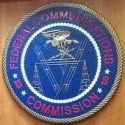Ajit Pai asks Congress to create legislation that helps consumers and small businesses stay connected as his Keeping Americans Connected Pledge nears its expiration date.

With his Keeping Americans Connected Pledge set to expire at the end of the month, FCC Chairman Ajit Pai has asked Congress to tee up legislation that will ensure that consumers and small businesses remain connected to broadband services in the coming months.
Pai's ask follows recent pleas from ISPs that Congress should help to cover the costs associated with the pledge. Earlier this week, Pai told Sen. Jerry Moran (R-Kan.) that the FCC would like to work with Congress on ways to compensate ISPs for lost revenues linked to the pledge commitments, according to Multichannel News.
Pai has also asked US service providers to avoid disconnecting customers who are late on payments or aren't in a position to pay through the end of July and to explore other options, such as deferred or extended payment plans. He also wants service providers to maintain or expand their Internet service plans for low-income families, veterans as well as remote learning plans for students.
Starry, the 5G fixed wireless broadband startup, announced this week it will honor the pledge commitments through July. Comcast, meanwhile, announced today it will provide free access to its 1.5 million public Wi-Fi hotspots through the end of the year and that it has also extended a 60-day free offer to people who qualify for its Internet Essentials program for the rest of 2020.
Pai announced the pledge in mid-March as the pandemic and stay at home orders heated up. Following earlier extensions, Pai's pledge is set to expire on June 30. Almost 800 US ISPs have participated, agreeing to suspend service terminations to residential or small business customers if they can't pay bills because of the pandemic, to waive late fees and to open up Wi-Fi hotspots. Pai has also urged ISPs to relax usage-based data policies temporarily.
"This public-private partnership has been critical to American consumers," Pai said in a statement about his call for Congressional legislation. "But broadband and telephone companies, especially small ones, cannot continue to provide service without being paid for an indefinite period of time; no business in any sector of our economy could."
To that end, he referenced The Broadband Connectivity and Digital Equity Framework, a proposal from US House Energy and Commerce Committee Republican Leader Greg Walden (R-Ore.) and Senate Commerce, Science, and Transportation Committee Chairman Roger Wicker (R-Miss.) that, among other things, would authorize more accurate broadband mapping and establish programs to keep people experiencing hardships from the pandemic connected.
Meanwhile, Pai noted that some ISPs are implementing various payment plans, deferring some payment plans and waiving some unpaid balances.
Conducting broadband business in a post-pledge world
Charter Communications, for example, has already made plans to waive a portion of past due balances for customers who can't pay their broadband bill because of the pandemic. Verizon is auto-enrolling customers on the pledge into a program that will enable them to repay past due balances over time.
Speaking this week at a Credit Suisse investor conference held online, Charter CFO Chris Winfrey noted that the financial impact of customers on the pledge program "is really less about bad debt" and more about a one-time revenue write-off for the second quarter of 2020.
Though these unpaid bills have grown during this period, Charter, he said, will put them in a program so they can pay their bill over time and remain as customers.
"If you insist on collection of the full amount, the likelihood that they can pay is pretty low," Winfrey said. "And so our view is that these are good customers. We're going to put them back into a position where they can pay their bill."
Mike Cavanagh, Comcast's CFO, also addressed the pledge issue at the Credit Suisse investor event. Comcast, he said, will be "quite flexible" with customers as the pledge expires.
"I don't see any kind of big disruption in sub count trends necessarily as we get to the other side," Cavanagh said.
Related posts:
— Jeff Baumgartner, Senior Editor, Light Reading
About the Author(s)
You May Also Like










